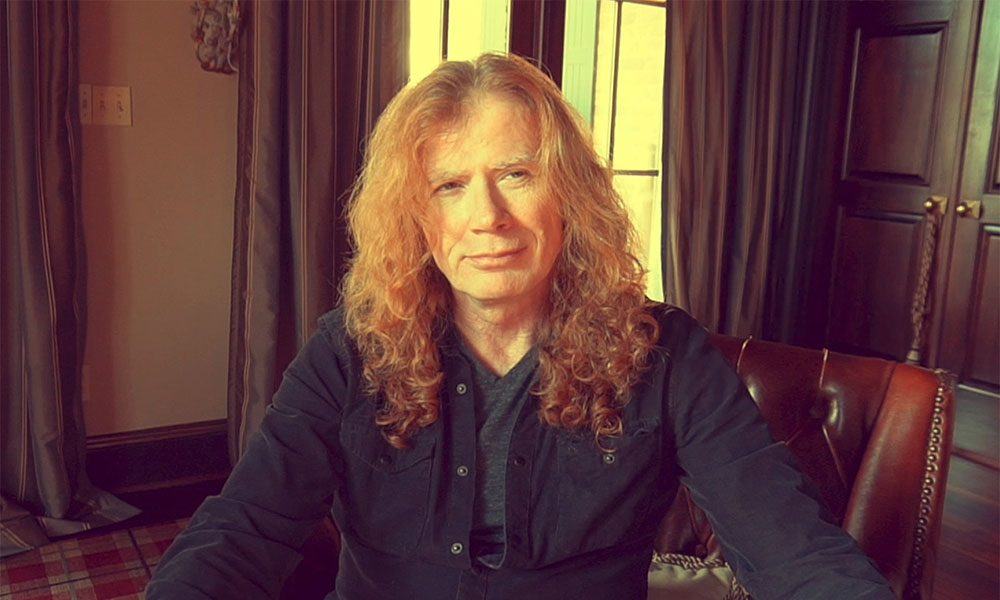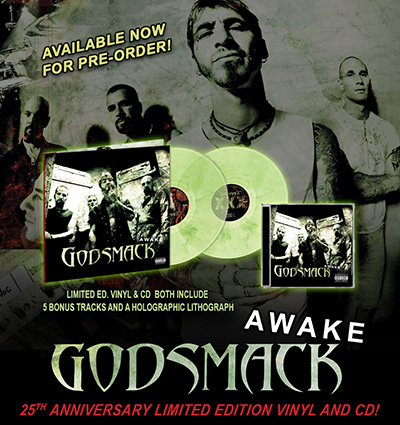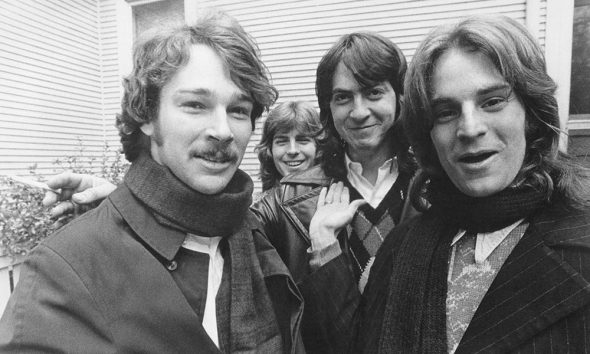Inside Dave Mustaine

Ever since emerging from the thrash metal explosion of the mid-80s, Megadeth have remained a force to be reckoned with. Though selling in excess of 50 million records and counting, the band’s flame-haired brainchild, Dave Mustaine, seems to be more focused than ever, pushing forward with the determination, hunger and passion that would put any young pretender to shame.
The band’s 15th studio album, Dystopia, is a master-class in thrash metal excellence. uDiscover talks to Mustaine about the process of putting it together, the band’s current line-up and the way the world perceives the man at the heart of it all.
“There was a lot of upheaval in our camp over the last couple of years: management changes, the loss of my mother-in-law and the Rust In Peace reunion thing,” Mustaine says, referring to aborted plans to reunite that era’s line-up. Instead, the group brought in new blood: whiz kid Brazilian shredder Kiko Loureiro (of Angra) and, unexpectedly, Chris Adler, drummer for platinum-selling heavyweights Lamb Of God.
“When Kiko and Chris came into the picture it was a breath of fresh air, because they are, without a doubt, two of the most talented musicians that I have ever played with,” Mustaine asserts. “To have musicians of that caliber playing at the same time is a formidable force. Any of the previous line-ups always had at least one member that was not up to standard: say the guitarist is great and the drummer is OK, or the drummer is great and the guitarist is OK. But to have totally changed and to have both positions filled with excellent musicians really helped to raise not only the morale of the band, but also the professionalism and the ability for us all as musicians. To be honest, I think that my guitar playing has improved, because of Kiko pushing me.”
Known for helping pioneer the entire thrash metal approach to guitar-playing, Dave still seems to be searching for perfection. In discussing Dystopia’s song structures and energy, his eyes twinkle and a warm smile graces his face; Mustaine knows that he has created one of the finest heavy metal albums of the year.
“Check this out,” he says. “All four of us had never played together in the same room until we started rehearsing for this tour. Those songs were written and recorded with some of us in different locations at different times. When Chris completed his drum tracks, Kiko then recorded his parts, while Dave [Ellefson] was actually the first one to record.”
Mustaine continues: “I was telling someone the other day just how excited I am about getting out there and playing live, because we’ve only played one show in Canada, four shows in Australia and India, two in Russia and the last short run of European dates… The first show with all of us together was in front of 80,000 people in Quebec! Talk about a baptism of fire!”
Considering Megadeth have been playing shows all over the globe for almost three and a half decades, you might think nerves are a thing of the past for Mustaine. “I was a little concerned for the boys for that show,” he says, “but I knew that I was going to have a good time and was ready to carry a heavy load if need be, because that’s my job as a front-man. The other thing is, they are so professional and great at their jobs, and most importantly they have charisma. Being in this particular music genre, let alone being in this band, you have to be able to carry it.”
One of the stand-out attributes of all Megadeth albums is the band’s ability to combine memorable and heart-soaring choruses with some of the most technically mind-blowing guitar arrangements within the thrash metal genre. The level of complexity exceeds that of many of their peers, and Mustaine continues to push boundaries while keeping to the high standards of Megadeth’s legacy.
“The way I deal with it is very much like what I can only imagine Michael Jackson was struggling with after he finished Thriller, trying to follow a diamond-selling album pretty much right after its release,” Mustaine says. “He followed it with Bad and I remember people were laughing at him because that record only sold eight million. I mean come on, man: eight million. That’s still amazing!”
Admitting that Megadeth are “really our own harshest critics”, Mustaine says, “Melody is very important to me – I don’t have anything against the bands that growl and scream, but it’s just not my cup of tea. When I’m driving in my Aston Martin, I’ll usually have the jazz channel on, or I’ll be listening to our own stuff because it helps me to get the feeling.” He laughs: “Cruising in a good ride, having a bit of horse power under the hood and listening to Megadeth – it’s not good for your insurance, but it’s a great way for me to put things into perspective. I will usually think: ‘How does this song resonate with someone’s life? How do I get to say what it’s like being a young man and to have what seems like no options?’ These things are part of who I am: coming from a broken home and being homeless, begging for food with Dave Ellefson. These are some of the things that people don’t really remember when they see us.”
Writing music is clearly cathartic for Dave, a way of dealing with the tough times while transforming those experiences into something everlasting. “That’s why I love melody so much,” he says. “Because you can close your eyes and listen to a song and it just takes you away. I remember when we used to get records and we would listen to them from one side, all the way through. Nowadays people are continually reaching for the skip button. The attention span of most music fans is a lot shorter, so you really have to focus and set the hook with the listeners.
“Back on our earlier albums we only had approximately eight songs,” he continues, “because they had to consider the grooves on the records, for when they go too close to each other. If you listen to Led Zeppelin’s ‘Black Dog’, when Robert Plant’s vocals come in, it’s almost like it’s sort of faded and then suddenly it gets really loud. That’s because the grooves are too close together on that record. With Dystopia, we have 15 tracks – that’s almost two complete records… The music business has changed so much over the years and is continuing to change at such a fast rate. Being competitive is one thing and winning over the hearts of the listeners is another.”
The image of the rock star, too, has changed. Compared to the icons that once graced the music weeklies and terrified parents across the globe, it’s hard to believe that any of today’s young upstarts could ever keep going the way Mustaine has. When asked about his driving force, Dave explains, “Some of it is faith-based and then some of it comes from being pissed off. There’s only so much that a man can take with people challenging your worth. It’s not so much what people think of me, it’s what God knows about me. I’m self-taught, and guys that are self-taught don’t get a free ride. Something is behind this and I want to make sure that the gift that I’ve been given is shared with the fans.”
Mustaine has spent “hours on the phone and on the net, chatting with fans outside of venues, in meet and greets, signing stuff and letting people know that they are not alone”. And while he acknowledges that he’s not as available to fans as their own family and friends, he asserts, “I just want them to know that they are not alone. I have been through some really hard stuff and I want them to know that if I can make it through, so can they. The most important thing, really, is the message in the songs, such as ‘In My Darkest Hour’. I never thought that song would have touched as many people as it did.”
We’re entering a very strange and turbulent time for heavy metal as, over the next decade or so, some of the great bands that pioneered the music will hang up their guitars. New generations of bands will have the difficult task of keeping the genre loud and proud, and Mustaine is concerned that too much subgenre dilution will lose the essence of what heavy metal is all about.
“A lot of it has to do with what the bands stand for,” he says. “When we were just starting out, people used to call us ‘dangerous’ and ‘bad boys’ and didn’t like us. I mean, around that time, Chris Poland [Megadeth guitarist from 1984-87] said something to me that I didn’t like and I kicked him in the face! What kind of guy does that to one of his band members?… There’s a difference between knowing that you’re dangerous and trying not to be like that, versus knowing that you’re not dangerous, but trying to make people think that you are.” Mustaine quotes a Texan saying, “Big hat, no cattle,” adding, “I think that’s one of the most facetious things about the metal genre now: the frontmen act like they’re badass and going to put a whooping on somebody at any given moment. It’s just ridiculous.”
As a father, to Justis Mustaine, Dave is aware that he’s leaving an example for the younger generation. “If you’re willing to learn, willing to grow and willing to accept your faults and make amends for them, you’re going to be a better person,” he says. “I told Justis that the best thing I want to leave for him is a respectful name. That really is the most important thing at the end of the day.”
Dystopia is out now. The limited edition picture disc can be purchased here:















Gavan Duffy
February 4, 2016 at 1:11 pm
Great piece Oran. Well done…
Fergus Ryan
February 4, 2016 at 1:54 pm
“The first show with all of us together was in front of 80,000 people in Quebec! Talk about a baptism of fire!” – that is mental!
Savage read!